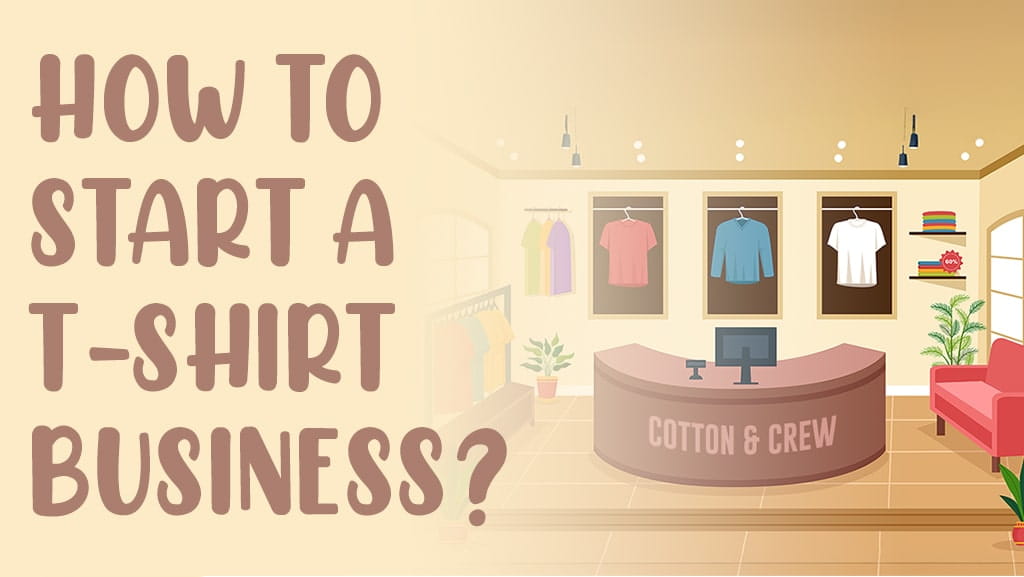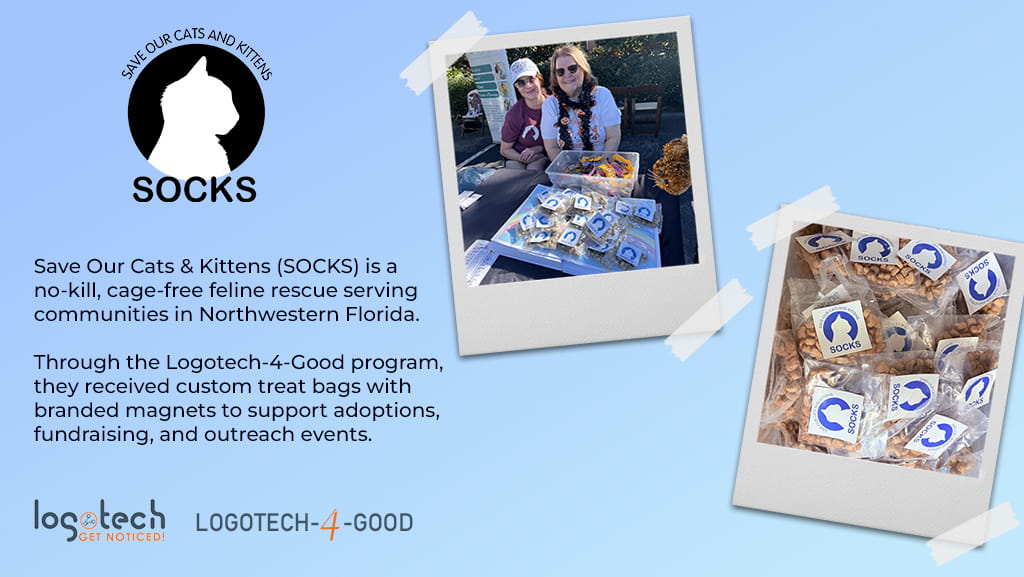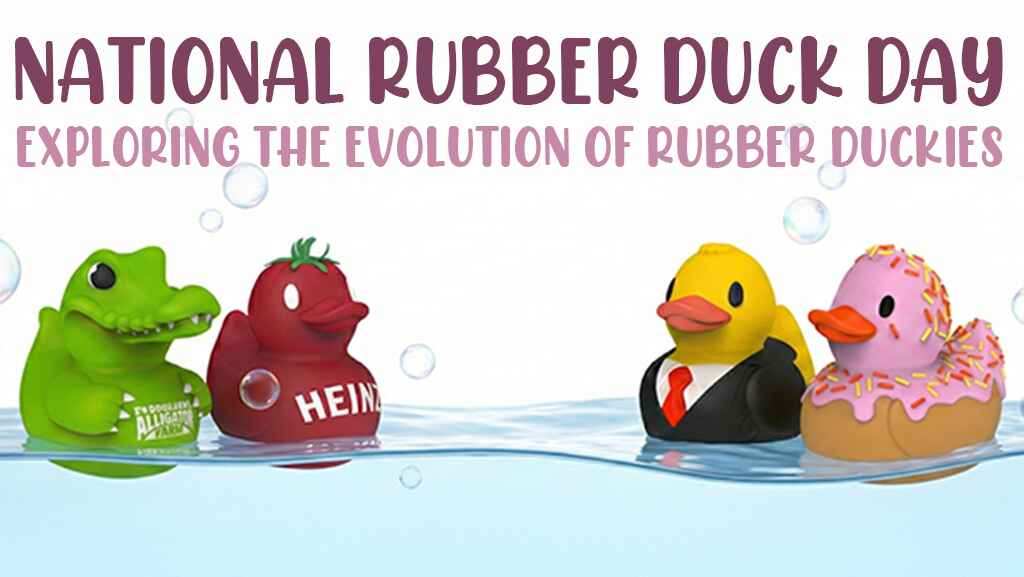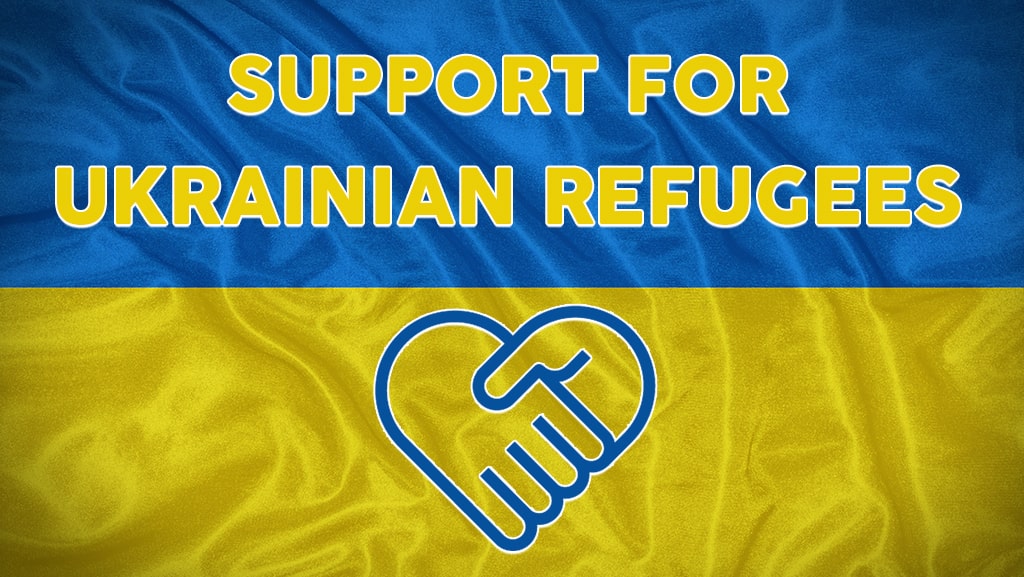
Logotech-4-Good Aids Ukrainian Relief
Supplies needed for humanitarian efforts.
Since 2018, Logotech-4-Good has supported non-profit groups with branded promotional products to raise awareness for their missions.
Our charitable program will refocus, for the time being, on providing needed humanitarian aid to Ukraine.
Logotech is working with shipping company Meest-Karpaty to deliver needed supplies. It plans weekly supply flights to Poland.
Supplies from Logotech will include children's clothes, toys, first aid kits, bandages, and other medical supplies from our vendor partners.
Read on to learn about Ukraine, the war, and what you can do to help.
Why is Logotech supporting Ukrainian refugees?
Because we believe it is the right thing to do at this time to prevent needless suffering.
Where is Ukraine, who lives there, and what is it known for?
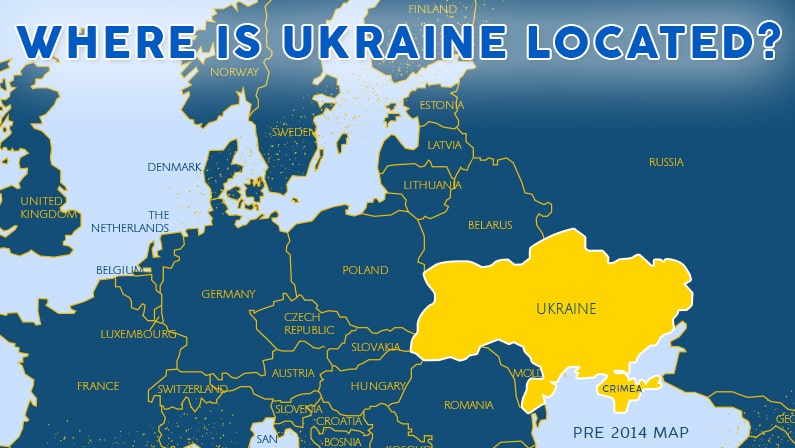
Ukraine, in Eastern Europe, lies on the Black Sea and the Sea of Azov. It borders Russia, Belarus, Poland, Slovakia, Hungary, Romania and Moldova. The capital is Kyiv, and the country has a population of about 40 million. Its residents speak Ukrainian and Russian.
It is the eighth-largest European country by population. It is the second-largest geographically.
Ukraine's nickname is "the breadbasket of Europe" because of its fertile land to the west. The eastern side of the country is an industrial center.
Many internationally known people come from Ukraine, from politicians to scientists, academics to actors.
American actresses Mila Kunis and Milla Jovovich were born there and immigrated as children. Kunis and her husband, actor Ashton Kutcher, promised to match up to $3 million in direct financial aid to the country.
Olympics fans may remember legendary figure skaters Oksana Baiul and Viktor Petrenko.
According to NBC News, Ukraine’s world-renowned national boxing system "has trained some of the world’s most technically dazzling fighters of this generation."
Vitali Klitschko is a Hall of Fame boxer and Kyiv's mayor. His brother, Wladimir Klitschko, was a two-time world heavyweight champion. Former featherweight, junior lightweight and lightweight titleholder boxer Vasiliy Lomachenko is also from the country; as is Oleksandr Usyk, who held the heavyweight and cruiserweight world titles.
All four boxers have taken up arms to defend Ukrainians, according to news reports.
Was Ukraine part of the USSR, and when did it leave?
Ukraine is one of 15 countries that were part of the former USSR. It was considered the second-most powerful republic in the former Soviet Union, behind Russia.
Its parliament voted for independence on August 24, 1991. On December 1 of that year, a country-wide referendum approved the Act of Declaration of Independence. More than 90 percent voted for independence, with 82 percent voter turnout.
After that vote, the international community recognized Ukraine as a sovereign, independent state.
In recent years, Ukraine has preferred to join with its European neighbors over its post-Soviet ties to Russia.
In 2019, amendments were added to its constitution, plotting a course towards E.U. and NATO membership.
What happened with Crimea, and how does that relate to the war?
Russia annexed Crimea, a peninsula on the southern tip of Ukraine, in 2014. Most of the international community, as well as the U.N., declared that annexation illegal.
A referendum merging Crimea with Russia, boycotted by many loyal to Ukraine, is considered illegitimate. Sanctions against Russia have been in place since then.
When did the war start?
On February 24, 2022, the Russian army invaded Ukraine after a year-long buildup of forces at the border. The international community and human rights organizations widely condemn the invasion. Many civilians remain amid fighting and shelling of the country. Millions have fled to safety.
How many people are displaced by the fighting?
At least two million people -- mostly women and children, the elderly and disabled -- have evacuated from the war in the first two weeks of fighting. Poland, Hungary, Moldova, Romania, Slovakia, Latvia and many other neighboring countries accept refugees.
Some refugees are staying with friends and family in their host country. Others are in reception centers waiting to find more permanent housing.
Some countries taking in refugees have also asked for additional international assistance.
How long will aid continue?
Watchdog groups say the invasion created the largest humanitarian crisis in Europe since World War II.
According to BBC News, "The E.U. is preparing to grant Ukrainians who flee the war a blanket right to stay and work throughout the 27 nations for up to three years."
In total, the number of refugees could reach seven million. The E.U. believes another 18 million Ukrainians will be affected by the war.
How can you help Ukrainian refugees and those remaining in the country?
Logotech and its staff encourage donations to groups collecting supplies within your communities. Find donation centers working with experts in the region. Needed supplies include:
Medical supplies:
- First aid kits
- Tourniquets
- Bandages (all kinds and sizes)
- Medical scissors
- Medical gloves (all sizes)
- Nasopharyngeal airway tubes
- Breathing valves
- Halo chest seals
- Anti-decubitus dressings
- Self-adhesive bandages
- Medical bandages for wound care
For families and children:
- Food and Clothing
- Diapers (various sizes)
- Baby formulas for all ages
- Warm clothes for babies/children (boots, sweaters, etc.)
- Toys
- Nonperishable foods
- Rice
- Buckwheat
- Different kashas (farina, flour, etc.)
How else can I aid the Ukrainian people?
Cash donations allow groups with expertise to purchase supplies and get them directly to the people. Monetary donations also enable humanitarian relief agencies to buy in bulk from vendors with which they have a long-standing relationship.
Please do your due diligence. Research organizations before sending cash donations to prevent fraud.
Reputable organizations taking cash donations for Ukraine include:
What is this war doing to Russia and the rest of the world?
In reaction to the invasion, several countries instituted further sanctions on Russia. Days after the war began, the ruble tumbled to a new low, losing nearly 90 percent of its value against the U.S. dollar.
Many international companies have closed stores or stopped doing business in Russia. Citizens are largely unaware of why this is happening, as most of their news comes from state-controlled media. Thousands of others were arrested for attending anti-war protests.
The sanctions include oil companies exiting Russia and the U.S. banning all Russian oil and gas imports. Other European countries rely much more heavily on Russia for fuel and have not yet cut ties.
With crude oil trading reaching $130 per barrel before the ban, the war means pain at the pump for both Americans and people throughout the globe.
The war exacerbates ongoing supply chain problems. Globally, supply chains are still suffering from the Covid-19 fallout. Rising oil prices, combined with possible embargoes of Russian fertilizer components and other commodities, may further increase inflation.
Experts disagree on whether sanctions alone can force Russian President Vladimir Putin to retreat or how long the war may last.
Logotech plans to continue sending supplies for the immediate future. We will reopen the Logotech-4-Good program at a later date.
We thank you for your understanding and support for the people of Ukraine.





